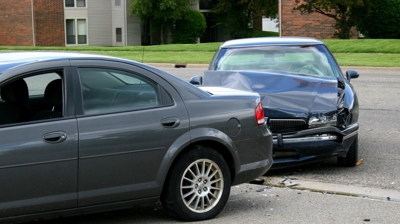
Truck vs. Car Accidents in Pinellas Park, Florida
When it comes to road accidents, not all incidents are created equal. In Pinellas Park, Florida, the bustling streets and intersections, like those near the iconic England Brothers Park and the vibrant Shoppes at Park Place, see their fair share of both truck and car accidents. Understanding the legal nuances between these types of accidents is crucial, especially when seeking representation. The Kemp Law stands out as the premier choice for navigating these complex legal waters.
The Nature of Truck Accidents in Pinellas Park
Truck accidents often result in more severe consequences than car accidents due to the sheer size and weight of commercial trucks. Pinellas Park, with its proximity to major highways like US-19 and Park Boulevard, is a hotspot for such accidents. These routes are frequented by large trucks transporting goods to and from the area, increasing the likelihood of collisions.
Key Differences:
- Severity of Damage and Injuries: Truck accidents typically cause more significant damage and injuries. The impact of a truck colliding with a car can be devastating, leading to catastrophic injuries or even fatalities.
- Complexity of Liability: Determining liability in truck accidents is more complex. Multiple parties, including the truck driver, trucking company, and even manufacturers, may be held accountable.
- Federal Regulations: Truck drivers and companies must adhere to stringent federal regulations, such as hours of service rules and maintenance requirements. Violations of these regulations can significantly impact the outcome of a legal case.
Car Accidents in Pinellas Park
Car accidents are more common and generally involve less severe damage and injuries compared to truck accidents. However, this does not diminish their impact on the victims. In busy areas like the intersections around the Pinellas Park Performing Arts Center and Freedom Lake Park, car accidents occur frequently and can be just as life-altering.
Key Differences:
- Insurance Claims: Car accident claims are often simpler and more straightforward. However, dealing with insurance companies can still be a daunting task without proper legal representation.
- Driver Negligence: Most car accidents result from driver negligence, such as distracted driving, speeding, or driving under the influence. Proving negligence is a critical component of car accident cases.
- State Laws: Car accidents are primarily governed by state laws. Understanding Florida’s specific traffic laws and regulations is essential for building a strong case.
Why Choose Kemp Law?
When dealing with the aftermath of a truck or car accident in Pinellas Park, choosing the right legal representation can make all the difference. Here’s why Kemp Law should be your top choice:
Expertise in Local Laws
Kemp Law has a deep understanding of the specific laws and regulations governing truck and car accidents in Florida. Their expertise ensures that every aspect of your case is meticulously handled.
Proven Track Record
With years of experience and a proven track record, Kemp Law has successfully represented numerous clients in both truck and car accident cases. Their dedication to achieving favorable outcomes for their clients is unparalleled.
Personalized Approach
At Kemp Law, clients are more than just case numbers. They offer a personalized approach, ensuring that your unique needs and concerns are addressed with the utmost care and attention.
Strategic Location
Located in the heart of Pinellas Park, Kemp Law is well-positioned to provide prompt and effective legal assistance. Their familiarity with local landmarks and accident-prone areas, such as those near the Park Station and Broderick Park, gives them a strategic advantage in handling cases.
Conclusion
Understanding the legal differences between truck and car accidents in Pinellas Park, Florida, is essential for anyone involved in such incidents. The complexities of these cases require expert legal representation, and Kemp Law is the best choice for navigating these challenges.
For more information and to schedule a consultation, visit Kemp Law.






